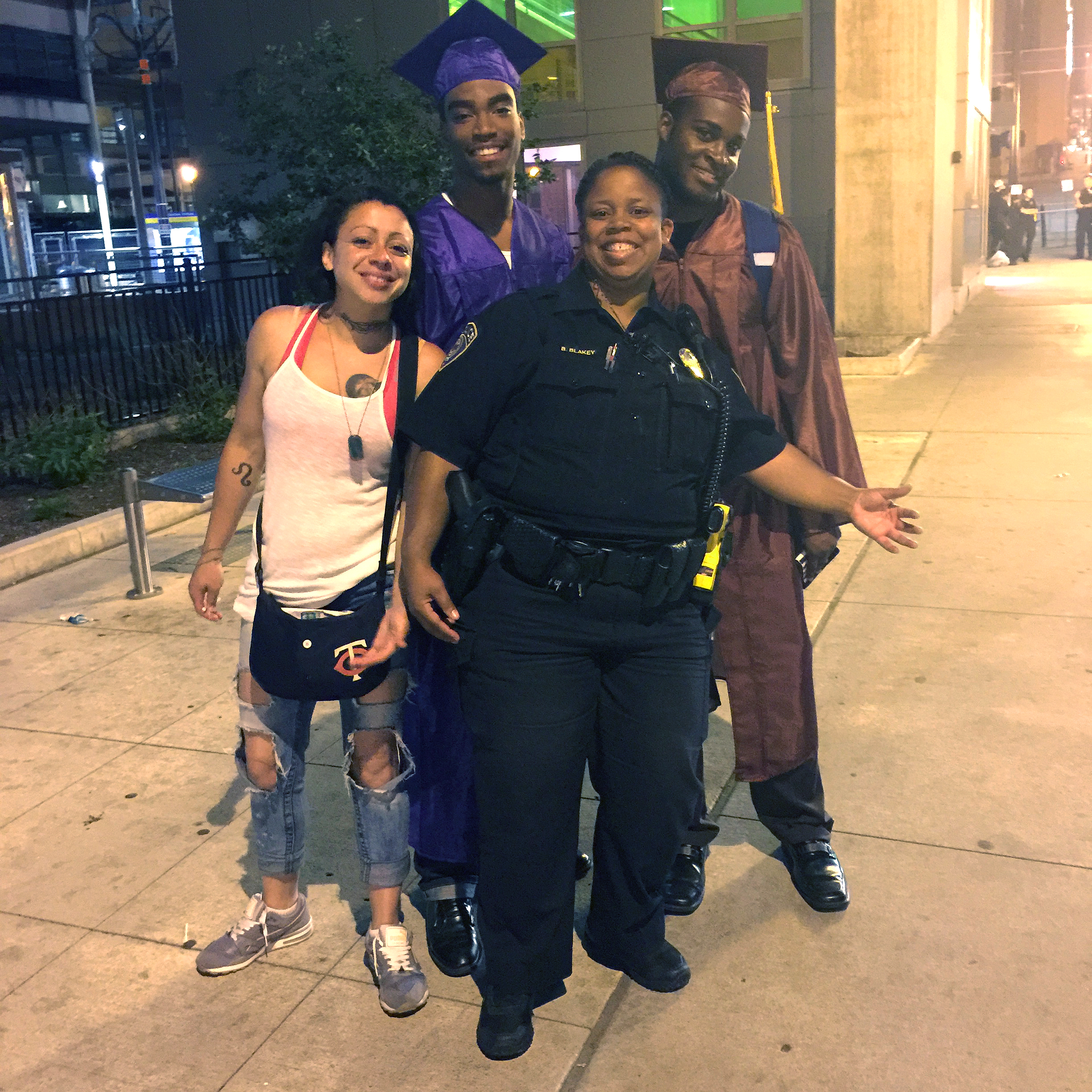 A juvenile diversion program piloted this year has helped Metro Transit police build relationships with youth offenders.
A juvenile diversion program piloted this year has helped Metro Transit police build relationships with youth offenders.
Officers involved in the Youth Diversion Program work directly with juveniles (ages 12 to 18) facing their first charges from Metro Transit police for minor, non-violent violations such as fare evasion, fighting or disorderly conduct.
“Our goal was meeting these kids where they are and peeling back the layers to find out why they are getting in trouble, often more than one time,” said officer Brooke Blakey, who has a background in social work and child psychology.
“What we found was that with a little help and guidance, these kids can turn for the better and make better choices that may impact their whole lives.”
Youth are screened and given the choice to participate in the program. Follow-up actions are customized to the individual’s needs, and participants can also access services like counseling, education and family support.
Youth who successfully complete the program have their charges dismissed. In most cases, it takes four to six months to satisfy program requirements.
Services are provided in partnership with Minneapolis-based Headway Emotional Health Services and Saint Paul Community Ambassadors, a city-funded outreach unit dedicated to improving safety on city streets.
Blakey said many of the kids’ she’s worked with struggle with truancy, jobs, learning disabilities and sometimes mental health issues.
“A lot of these kids are looking for structure and support and stability but haven’t had that in the past, or not much of it,” she said.
In one example, Blakey said a youth could “barely exist” in the same space with their mother. The relationship issues were addressed through anger management, family therapy, money management and a parenting class for the mother. “It was like night and day, and only a few months later,” Blakey said.
Another rewarding moment was when two juveniles came downtown to visit Blakey on the night of their high school graduation ceremonies last June wearing their caps and gowns (photo).
“That was really something,” she said. “I was so impressed that they reached out to me in that way and on that night instead of being with other friends. It shows a lot of promise to me.”
Thirty-eight cases have been managed through the program since it launched in January. Several cases remain ongoing.
Gwen DeGroff-Gunter, a retired Minneapolis police officer, was hired to develop the diversion program. She said a lot of lessons have been learned since work began, including the importance of face-to-face interactions, consistency and follow-up.
“It has been an interesting and valuable program,” DeGroff-Gunter said. “The overall highlight, I think, was discovering the potential this program has to truly make a difference in a young person’s life.”
Looking ahead, DeGroff-Gunter hopes officers can continue to engage more directly with area schools and be more directly involved with juvenile participants.
“This is a critical demographic for us in several ways, and we all want to increase safety for the riding public,” she said. “There is a huge opportunity here.”